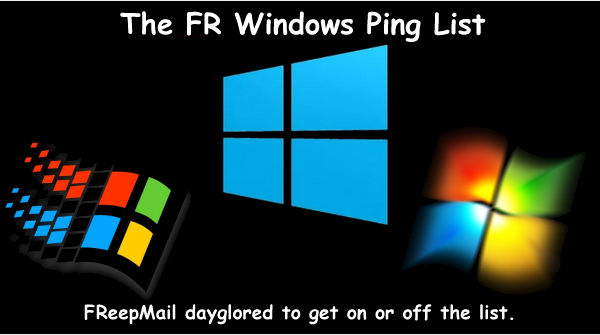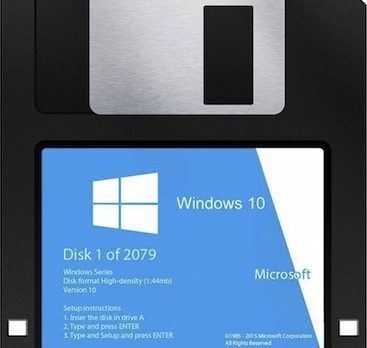 |  |
|---|
Posted on 09/26/2021 2:40:46 PM PDT by BenLurkin
Windows 11 may be on the way, but more than 1 billion people are still using Windows 10 -- and many have no idea about the default settings that collect information, make you see more ads and notifications and may be slowing down your device. (It will be free to upgrade to Windows 11 if you're already using Windows 10 -- here's how to download Windows 10 free if you haven't already. And here's how to tell if you can upgrade to Windows 11.)
If you're a Windows 10 user, you'll want to spend just a few minutes looking into these default settings, and potentially turning them off, for the sake of privacy, speed and convenience. Here are eight settings that are turned on by default that you can disable in Windows 10. (You can also check out the top Windows 10 tips and tricks, and how to troubleshoot common Windows 10 problems.)
Reading that link you provided, it brought up something I have never thought about; the spinning of the HHD.
Windows is resourceful when the HDD is not in use, it slows or stops the spinning, whereas Linux doesn’t.
I never noticed it before when I was running Linux (with HDDs) probably because it was on a desktop PC, and constantly plugged in.
I don’t have that issue since I have 2 SSDs on my laptop.
Apologies if someone else has mentioned this, but the program ...
OOShutUp10 (German freeware translated to English of course)
https://www.oo-software.com/en/shutup10
... is excellent for dealing with the insane amount of privacy settings that must be repeatedly addressed in Windows 10.
This lightweight utility program has probably ALL the settings that are reasonable to fix, and they suggest what to do and have very nice built in documentation in each switch to help you decide if you need that setting on or off.
It is a “portable” and simple program that stores its configuration in a single text file that you can keep to restore your settings when you move it or update. The active settings in use are stored the old way in a text “.ini” file like used to be done before everything started getting stored in “the registry,” which makes it harder to more programs, etc.
You have to give it “administrator” permission temporarily for it to work. When you do that it might appear as though you are installing it every time you run it — that’s in part because it never is installed in the first place, it runs and when done leaves computer memory and it gone until the next time. You could leave it running but one can just quit it after checking settings. It works without any disabling of any security programs you have like antiviruses, etc.
You could probably do a lot of these settings manually but it would be really hard. They are spread all over in various areas of “Settings” and old settings and even administrator programs. Many are deeply buried in obscured links, they do not want you to fix these, all these links could be on a few pages but you have to dig into “Advanced” links and they spread it all out as though all their uses need to use a little touch screen withg fat fingers. This program cuts through that.
Setting Windows 10 for best possible privacy is actually quite a job and is only partly and temporarily accomplished paying attention to choices when Windows is originally installed. (And that was years ago for many of us, Microsoft definitely reverts your privacy settings to what they want by “updating” them incessantly.)
Regarding, “It’s not like MS is hiding any of this.” — I think it IS hiding a lot of this, they default to a much larger attack surface for hackers and advise you about settings in a manner that makes the average person afraid to change the default settings, plus there is a lot of granularity that they do not address in setup and whatever you set they regularly break portions of it with updates.
Even with the program it will feel intimidating to the average Win 10 user but if you look at the program comments on each setting it will help.
Hope this helps someone, I highly recommend OOShutUP10, hope there is an OOShutUP11 on the way.
I really could not care less which operating system that I am using most of the time. I sometimes run Linux in virtual machines but more for fun than anything else. I have a lot of software that I have spent decades working with that has no equivalent in Linux or would be extremely difficult to transition to. For example, one of my hobbies is designing parts to print using my 3D Printer. None of my favorite software for this runs on Linux. And it is often a problem to get Linux to run well on many types of hardware.
I get a big kick out of people here who think that they are special because they have been able to load Linux up on their computers and use an internet browser, word processor, spread sheet or some type of game on it. Congratulations to them all, but most of us have dabbled in Linux over the past 30 years or so. For various reasons Microsoft is still what most of us rely on for most tasks.
Save
Ping for later.
What needs to be scrutinized is the EULA, to see if the owner retains the right to ignore any settings turned off by the end user.
BTC miner, eh?
Same here I’ve only used SSD drives for over 10 years now.
BTTT
Don’t tell me what to do.
You ain’t the boss of anyone around here.
= = =
Keep posting.
Post a lot of stuff.
The more and the quicker the better.
Or else, you hear?
Don’t tell me what to do.
You ain’t the boss of anyone around here.
= = =
Keep posting.
Post a lot of stuff.
The more and the quicker the better.
Or else, you hear?
You probably didn’t see my response to humble.
I have a Degree in computer science and can pretty well get a computer to do what ever I want. Even If I have to do Assembly language to do it.
Some windows applications are just that, Windows, but If you understand the interface it really doesn’t matter.
The beauty of Linux, is it is hard to hack, as you need root authority to run executables, so Malware, viruses, and black mail is much harder to do and so most hackers don’t bother. If you aren’t computer literate I would not bother with Linux. a MAC O/S is probably the best for the vast majority of the population.
My work laptop is Windows 10. We're moving to a BYOD model. Our IT will support Mac, Windows and Ubuntu for remote computing. I'm in I.T. Leadership at the big multinational bank I work for and I along with many others have been clamoring for a BYOD model. We know how to interoperate with Windows from Mac and Ubuntu desktop and enable Active Directory login for all three. Our logins are moving to a cloud based Active Directory to separate users from our data centers and are implementing a zero-trust model.
We'll save tens of millions of dollars per year with BYOD. Most of our IT users are choosing Ubuntu or Mac, roughly 50% of our user community are choosing Macs because that's what they have at home and they're the most familiar with.
Bye Bye Microsoft!
 |  |
|---|
Bfl
Changes made.
Read Later
I primarily run Linux, damned if the insurance estimating software is only usable on windows.
Bkmk
I did not mean any disrespect to you. I should probably have responded with my rant to someone else. When I was in school we were still taught how to use slide rules and I still have a couple of beautiful examples around.
I caught the digital bug about the time that pocket sized electronic calculators started becoming available at reasonable prices. Last winter I sold off some of my collection of vintage computers on eBay. Some have actually have interesting histories and have become valuable. But I still have a sizable collection including the first XT clone that I put together along with its amber monitor. The biggest issue with most of them is that the heads on the floppy drives need to have the corrosion polished off of them and many of the capacitors in the power supplies have dried up and need to be replaced.
I have been fiddling with computers since software was distributed in magazines and you had to key in the code and save it on your cassette tape drive. If I could only get the days, weeks and months that I wasted doing this type of nonsense back. And that is just scratching the surface of the time that I have wasted with electronic devices. And lets not even mention the money I threw away on “massive” 50MB hard drives and the like. My best friend used to say that I was suffering from ETF (Electronic Trinket Fever). But I admit that I still love all these old devices.
Disclaimer: Opinions posted on Free Republic are those of the individual posters and do not necessarily represent the opinion of Free Republic or its management. All materials posted herein are protected by copyright law and the exemption for fair use of copyrighted works.